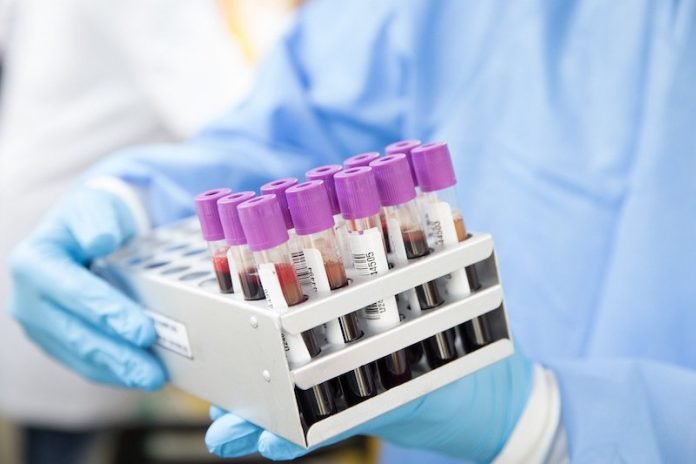
In a new study, researchers found a blood test can predict the risk of Alzheimer’s disease in people who were not having the disease but perceived themselves as cognitively impaired (Subjective Cognitive Declined, SCD).
Using a test developed at Ruhr-Universität Bochum (RUB) called the Immuno-Infrared Sensor, they identified all 22 people at study entry who developed Alzheimer’s dementia within six years.
The test also showed which people were at very low risk to develop Alzheimer’s dementia within six years.
The research was conducted by a team at Amsterdam University and elsewhere.
The study included 203 individuals. At study entry, blood samples were taken from all the participants and analyzed using the patented immuno-infrared sensor that detects misfolding of the amyloid-beta (Aβ) peptide, which is a biomarker for Alzheimer’s disease.
In addition, the people underwent extensive Alzheimer’s disease diagnostic testing; at study entry, this did not provide a diagnosis of Alzheimer’s disease in any of the subjects studied.
The immuno-infrared sensor, on the other hand, detected misfolded Aβ peptides at study entry in all 22 people who developed the clinical disease in the following six years.
In people who showed mild misfolding, it took on average longer (3.4 years) for conversion to clinical Alzheimer than in subjects with severe Aβ misfolding (2.2 years).
In addition, the team checked whether the combination of two different measurement methods in the plasma biomarker panel could further improve the prediction of disease risk.
They found this increased the assay accuracy from an AUC (area under the ROC curve) of 0.94 to 0.99.
The team can now very accurately predict the risk of developing clinical Alzheimer’s disease in the future, with a simple blood test on symptom-free individuals with subjective concerns.
Through the plasma biomarker panel, we can monitor disease progression over 14 years, beginning in the asymptomatic state with misfolding of Aβ and subsequent plaque deposition of Aβ42 in the brain linked to the first cognitive impairments.
Such a blood test, which can detect the onset of Alzheimer’s dementia even in the asymptomatic state, would be particularly useful if an active substance were available to treat the disease.
One author of the study is biophysics Professor Klaus Gerwert.
The study is published in Alzheimer’s Research and Therapy.
Copyright © 2021 Knowridge Science Report. All rights reserved.




